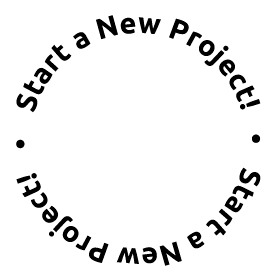Market research is a crucial aspect of starting and growing any business. In order to succeed, you must be intimately familiar with your customers and the prevailing market conditions. Recent statistics indicate that many businesses are starting to appreciate just how crucial it is to conduct thorough research. Statista reports that the market research industry doubled from 2008 to 2020, reaching over £53.5 Billion (73B USD)
One of the leading reasons that 65% of businesses fail within ten years is related to a lack of sufficient research. Research can cover various aspects, from validating a business concept to understanding your target market (or your competition). Success in business is helped or hindered by countless factors, either external and internal. With sound research and good data, we can better navigate marketplace uncertainties and help our business achieve long-term success.
So, what types of Research is Important for Your Small Business?
There are many types of research that play a pivotal role in business regardless of size. For example, under the umbrella term “market research,” we also recognize Marketing, Product, and Sales research. It can help to break research down into these multiple categories to highlight each area.
Market Research:
This is probably the type of research with which is most familiar to people. Researching your market is something you need to do before you even start a business. It’s a fundamental part of any business plan. It answers questions such as:
• Who are your customers? You need one or perhaps multiple buyer personas to identify the main characteristics of your customers.
• Who is your competition? This will change over time.
• What is the demand for your products and services? This depends on factors such as market trends, the state of the economy, and your location.
While you need to do preliminary research before starting a business, you also have to continue researching throughout the life of your business. Research is not something done once; research should be ongoing. Conditions are constantly changing as the demand for products rises and wanes, new competitors appear and disappear, market conditions such as prices change, or any other external or internal factor can have a serious effect on your business, which can risk your research and data quickly becoming outdated.
Marketing Research
Market and marketing research are sometimes confused, but they are distinct types of research. Researching your marketing strategy and practices are essential if you want to get the best ROI on your marketing efforts. This includes areas such as:
• Investigating potential areas of marketing you may want to use, such as social media, paid ads, email, content marketing, etc.
• Analyzing the ROI on advertising and other marketing campaigns.
• Comparing engagement between channels such as different social media platforms, email, paid ads, videos, and blog posts.
• Measuring engagement for topics and keywords in all your content.
Product Research
Product research, which can be considered a subset of market research, is an essential step when a business is thinking about releasing a new product. This type of research includes:
• Estimating the demand for a product.
• Questioning customers about the features and benefits they value the most in a product.
• Identifying the major challenges and complaints associated with a product.
• Studying the competition and analyzing which of their products perform best.
Product research lets you plan more successful product launches and fine-tune the products you are already selling.
Sales Research
While market and sales research overlap, sales research is relevant for businesses that have dedicated sales departments. This is related to the distinction between marketing and sales. Marketing is broader and encompasses the entire buyer’s journey, starting with awareness and getting customers interested in a product. Sales are specifically involved in the actual selling of products and services. This may include:
• Measuring the effectiveness of selling techniques, salespeople, and sales teams.
• Researching the comparative effectiveness of different lead generating strategies used by salespeople.
• Considering new strategies and services (such as software for lead management) that could drive sales for the business.
Sales performance metrics can tell you important information, such as how many sales associates are reaching their quotas, the average size of a sale, and conversion rates using different techniques.
Research Techniques to Help You Gather Valuable Information
So, what are some of the most effective ways to research a market?
Gather Customer Insights:
Customer insights refer to actionable information you gather from customers. According to Microsoft, companies that generate insights based on customer behaviour tend to outperform their competitors in sales growth by up to 85%. There are several ways to gain this type of valuable information from customers, such as polls and surveys and focus groups. For best results, you should focus on the channels that are most convenient for your customers.
• Contacting people directly. You can send personal invitations to interview people in your demographic. They can be contacted however it’s convenient, such as by phone, email, or online chat. Simply ask something such as, “Would you be willing to participate in a short interview to get your opinion on our product/business?”
• Interacting with people on social media. The average American spends 38 minutes on Facebook every day. Talking to people on their favourite social media platforms is a good way to get their thoughts on all kinds of topics related to your business. Facebook and LinkedIn groups are also useful for connecting with people.
• Listening to customer service. Customers don’t contact support because they want to help you gather research, but their questions and issues are quite valuable in this regard. Customer service reps gather important feedback from customers. By studying the problems that customers call or write about, you can identify the areas where you need to improve.
Study the Competition (Competitor Analysis)
It’s always a good idea to pay close attention to your competitors, whether your business has been around for a long time or you’re just starting out. Here are some important points to keep in mind when studying the competition.
• Watch your competitors’ social media behaviour. Note which platforms they use the most and where they get the most engagement.
• Pay attention to keywords. It’s always important to know which keywords your competitors are ranking for. You can use this to guide you in your own keyword strategy.
• Be aware that your competition is always changing. New competitors may appear at any time. Additionally, the same competitor may change their strategies and offerings at any point. That’s why competitor research is an ongoing process and not something you only do once or occasionally.
• Study indirect as well as direct competitors. Direct competitors are selling products similar to yours. Indirect competitors sell different products/services that solve the same problems. For example, if you sell exercise machines, your direct competitors sell similar machines. Indirect competitors may sell nutritional products that help people reach the same goals.
• Read reviews. You should monitor your competitors’ reviews almost as studiously as your own. Customers often provide the most honest information on what a business is doing well and where it is failing. You can use this information to inform your own decisions.
Have a Clear and Consistent Research Strategy
While everyone agrees that research is important, it’s not always clear, even within a single organization, just what the objectives of the research should be. If you want your research efforts to yield maximum results, make sure everyone is on the same page about what you’re trying to accomplish.
Identify Your Goals:
Your goals and inform the type of research you need to do. For example:
• A new business needs to do research to write a compelling business plan to secure a loan or funding from investors.
• You need to find out if a new product will be welcomed or snubbed by your customers.
• Study the competition to find out if the market is already saturated in a certain location or for a particular product.
When setting goals for research (or for any purpose), it helps to set SMART goals. These are goals that are specific, measurable, attainable, relevant and time-based.
Share the Results:
One thing you want to avoid is the silo effect, in which different people and departments in an organization are cut off from one another. This is particularly damaging if research goals and results aren’t shared throughout the business. For example, if you want insights into how customers feel about a certain feature, make sure that marketing, sales, customer service, and any other departments that interact with customers are aware of this.
How Research Helps You Improve and Expand
The purpose of research isn’t to simply collect lots of data. It’s to help you serve your customers better and to hopefully grow your business.
• Research helps you identify and take advantage of new opportunities for growth. This may include new products and services or new locations for a physical business.
• Clarify and strengthen your brand message. You can take what you learn from customers and market trends to help you build a stronger brand. This may include the layout of your website, your logo, the style of your content, and everything else that goes into your branding.
• Meet your customers’ needs more effectively and, in some cases, lets you anticipate their needs and wants before they’re even aware of them.
• Have more control over your finances. Research helps you invest in marketing and advertising with more discernment. You can also get more accurate financial forecasts based on factors such as the economy and trends in your industry.
Use the Right Tools
You’ll need to gather the tools and services you’ll be using for market research. There are a number of websites that provide valuable data on consumers and business trends. These sites are usually free to access, though, in some cases, they also have paid plans.
• Google Keyword Tool –A classic tool that’s still helpful for keyword research.
• Amazon — Amazon is valuable for researching popular products. It’s also worth looking at bestselling books, even if you’re not selling books yourself. Finding popular books, especially nonfiction, helps you identify current trends and information people are seeking.
• Quora and other question & answer sites. See what questions people are asking about your industry.
• Google Trends — Provides a constantly updated summary of the latest trends in all areas of society.
• Pew Research Center– Has lots of news and statistics on current events worldwide.
• Statista– A leading source of statistics. They provide free information and also have paid plans.
• U.S. Census Bureau Business and Economy– The latest numbers concerning U.S. businesses in all industries.
• Facebook Audience Insights–This tool is helpful for researching not only Facebook audiences but also any competitor with a Facebook Page.
You can add to this list based on the sites you already use and depending on the type of information you’re seeking.
Outsourcing Research
Research can be a complex and time-consuming endeavour. You may want to consider outsourcing some or all of your market research to an agency that specializes in this area. However, you’ll still have to do the work of identifying the type of data you need. For this, you need to be familiar with your target market, competition, and the platforms and channels where your customers are active.
Market Research: an Ongoing Process For Your Business
You need to conduct market research before starting a business. However, you also have to continue researching your market to keep up with the constant changes in customers, competitors, and the economy. Consistently studying your customers and industry helps you stay relevant and adaptable to changing circumstances.
Professional Marketing Agency in London
If you enjoyed this article and would like to discuss Marketing, or you need help in creating a Marketing Funnel or conducting Market Research, we are happy to help.
We are a full-service London branding agency that focuses on start-ups and small businesses with big ambitions. We offer value, experience, free support, and a personal team that adjusts its approach according to your preferences.
Whether you need new Marketing, Advertising, Branding or Rebranding, turn to Yasmeen Creative today.
Contact us at +44 20 451 90 900 for your free one-hour consultation.


 BACK TO BLOGS
BACK TO BLOGS

